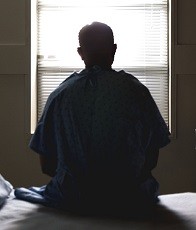Delta Hospice Society
Members of the media are urged to view the attached video that explains why the Delta Hospice Society has been forced to issue layoff notices to all clinical staff prior to our role concluding inside our Hospice effective Feb. 25, 2021.
The board of DHS deeply regrets being compelled to take this action. Tragically, as the video and the attached background document make clear, we have been left no other choice due to the Fraser Health Authority canceling our service agreement and 35-year lease. Fraser Health is about to evict us and expropriate approximately $15 million of our assets simply because we decline to euthanize our patients at our 10-bed Irene Thomas Hospice in Ladner, B.C.
To be clear, we accept that the provision of MAiD is an elective, legal service across Canada. Nothing in Canadian law, however, requires medically assisted death to be made available everywhere, at all times, to everyone. The Constitution of our private Society and our commitment to palliative care, bars us from offering it. Neither the board of the DHS, nor the vast majority of our patients and members want to change that.
“This is not a debate about MAiD,” says board President Angelina Ireland. “A person who wants MAiD can have it at the hospital right next door to us. This is about the B.C. government destroying a sanctuary for dying patients who want the choice to stay in a palliative care facility where MAiD is not offered. They now find their rights to equal choice being revoked. They are being disenfranchised by the very system they pay for.”
Ireland notes the DHS has been so committed to protecting the right to a sanctuary for the dying that it offered to forego $750,000 in public funding last February in order to operate as an authentic palliative care centre. The Fraser Health Authority rejected the proposal without negotiation. Instead, it served DHS with a one-year notice of eviction with the intent to expropriate its assets.
“The Society has done all it can to have discussions with Fraser Health about the conflict with its Constitution. It has done all it can to follow its service agreement and required legislation. Fraser Health has made no attempt to understand the 30-year relationship with the Society, which has always been recognized for its exemplary care,” says founder and former Executive Director Nancy Macey.
Journalists and the Canadian public at large are urged to recognize where that approach has led: working notice slips for dedicated palliative care employees, and the destruction of a sanctuary for the dying. The Society is dedicated to the future of palliative care and is continuing with its supportive care services such as: bereavement counseling, vigils, spiritual care, volunteer coordination, education, social work and the many other ways it provides care directly to the community.
To arrange interviews, please contact:
Angelina Ireland, President Delta Hospice Society Board,
778-512-8088
irelandangelina@gmail.com
